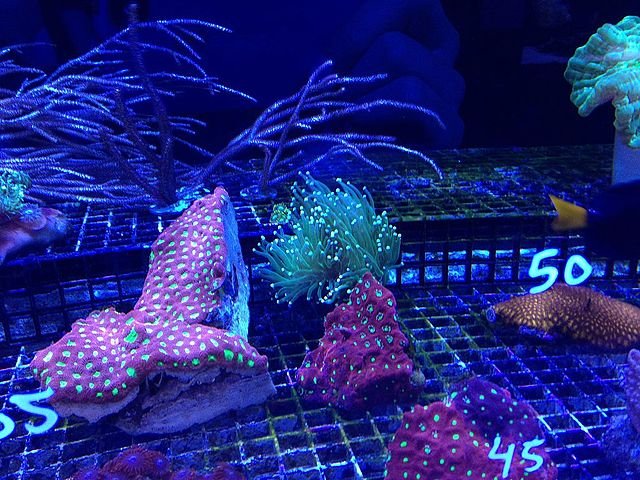by Alan Williams, University of Plymouth
The Ropes to Reefs project will assess the wider benefits of the UK’s first large-scale offshore mussel farm, located in Lyme Bay off the south coast of Devon.
In particular, it will examine whether the farm has resulted in benefits for the area’s biodiversity and productivity, and also investigate its impacts on the habitats of other important fish species.
The results of the £870,000 project will help to inform ecosystem-based fisheries management into the future.
Ropes to Reefs is one of 12 initiatives – three of them led by the University of Plymouth – designed to support sustainable fisheries management that have received funding as part of the fourth and final round of the Fisheries Industry Science Partnership (FISP) scheme, part of the Government’s UK Seafood Fund.
It will be led by experts in marine conservation at the University of Plymouth, who have decades of experience in using innovative techniques to monitor the marine environment.
In particular, it will build on a long-running partnership between the University and Offshore Shellfish Ltd, and will utilise the unique before and after ten-year dataset – generated through PhD studentships supported by the company – that has been collected throughout the development of the farm.
That long-term partnership will also work with other organisations directly involved in the UK offshore aquaculture industry, including Scallop Ranch Ltd and local seaweed farmer Biome Algae, along with the Shellfish Association of Great Britain, the Marine Management Organisation, the Fishmongers’ Company’s Fisheries Charitable Trust, Devon and Severn Inshore Fisheries and Conservation Authority, and Natural England.
It also complements the University’s ongoing work to monitor the Lyme Bay Marine Protected Area (MPA), designated in 2008 and the first and largest MPA of its kind in the UK.
“Offshore mussel farming has the potential to become one of the world’s most sustainable, large-scale sources of healthy protein. Through the Ropes to Reefs project, we can gauge the industry’s potential benefits far beyond just providing a sustainable source of food. Working closely with the fishing and mussel farming industry, and building on previous and ongoing research, we can deliver essential evidence regarding the impact of offshore aquaculture. This will enable us to fully assess whether it can serve as a nature-based solution that preserves – if not enhances – the health and productivity of our ocean” said Emma SheehanEmma Sheehan, Associate Professor of Marine Ecology and lead of the Ropes to Reefs project.
Stay Always Informed
Join our communities to instantly receive the most important news, reports, and analysis from the aquaculture industry.
The project will use cutting edge, cost-effective and non-destructive remote sampling techniques to monitor the seabed and ocean, under and around the farm.
This technology includes an automatous surface vessel fitted with a state-of-the-art multibeam sonar, along with ground truthing cameras deployed from local fishing boats, both of which will produce high resolution data.
Researchers will also use technology developed through the FISH INTEL project, another initiative led by the University, to track fish and crustaceans using acoustic tags via the world’s first multi-farm aquaculture telemetry network.
“The suspended rope culture offshore mussel farm in Lyme Bay has been designed to produce thousands of tonnes of sustainably farmed mussels from a relatively small area, which is less than 1% of Lyme Bay. During the past nine years of operation, we have witnessed the regeneration of biodiversity in the farmed area and huge increases in the number of fish and shellfish such as bass, mullet, crab and lobster. These benefit from habitat, shelter, nursery areas and food that is freely available around the ropes in the farm. The Ropes to Reefs project will provide evidence to determine whether the offshore mussel farm provides an enhancement effect to surrounding commercial fisheries, as the other species spill over from the protected area. It will also establish whether food produced by this type of aquaculture acts as an addition and not a replacement to traditional fisheries,” said John Holmyard, Managing Director of Offshore Shellfish Ltd.
Editor at the digital magazine AquaHoy. He holds a degree in Aquaculture Biology from the National University of Santa (UNS) and a Master’s degree in Science and Innovation Management from the Polytechnic University of Valencia, with postgraduate diplomas in Business Innovation and Innovation Management. He possesses extensive experience in the aquaculture and fisheries sector, having led the Fisheries Innovation Unit of the National Program for Innovation in Fisheries and Aquaculture (PNIPA). He has served as a senior consultant in technology watch, an innovation project formulator and advisor, and a lecturer at UNS. He is a member of the Peruvian College of Biologists and was recognized by the World Aquaculture Society (WAS) in 2016 for his contribution to aquaculture.






